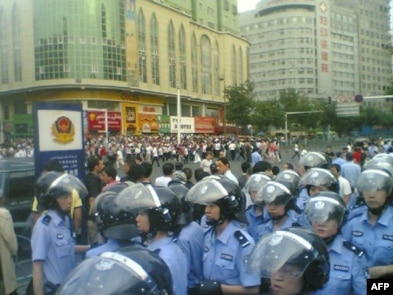
STOCKHOLM — Turkish Foreign Minister Ahmet Davutoglu on Saturday hit out at opponents of his country’s EU aspirations, such as France and Germany, and said Turkey’s future within the European Union was assured.
“We have full confidence that our French, British and other colleagues will keep their commitment… There is no need for convincing, it is already sure that Turkey and the European Union will integrate in the future,” Davutoglu told reporters after talks with his EU counterparts in Stockholm.
Turkey, which has been knocking on Europe’s door for decades, began formal EU accession talks in 2005.
Today they are stalled by French, German and Austrian opposition as well as Ankara’s refusal to trade openly with EU member Cyprus.
EU nation Cyprus is also opposed to membership for Turkey, which is the only nation to recognise the Turkish-Cypriot statelet in the north of the island of Cyprus.
“The negative voices that we keep hearing from some countries in the EU just spread doubt among our citizens and impede our efforts to continue reforms,” Davutoglu wrote in an op-ed piece published in Sweden’s paper of reference Dagens Nyheter on Saturday.
Davutoglu said Turkey had carried out reforms that were “unthinkable just a few years ago,” citing greater freedom of religion and expression, the abolishment of the death penalty and radio broadcasts in Kurdish.
He said critics of Ankara’s EU bid were harming the country’s “silent revolution.”
“Like us, Sweden realises that Europe can never be a strong and united entity as long as Turkey remains outside the EU,” he said.
“The support from countries like Sweden, with their objective and encouraging attitude, is very important in the process,” the Turkish minister added.
French Foreign Minister Bernard Kouchner reiterated his country’s opposition to Turkish membership.
Asked about Swedish support for Ankara he replied “others (in the EU) are opposed”.
“They (the Turks) are not first on the list. We have all the Western Balkans to let in (to the EU) and that is necessary,” he added.
There was also a call on Turkey to open its ports to Cypriot ships, a main hurdle to its EU aspirations.
France and Germany have suggested a “privileged partnership” for Turkey rather than full EU membership.
Copyright © 2009 AFP. All rights reserved.
Source: www.google.com, 6 September 2009









